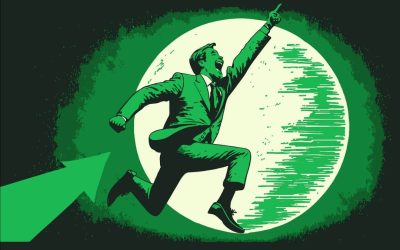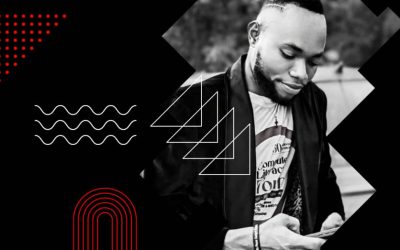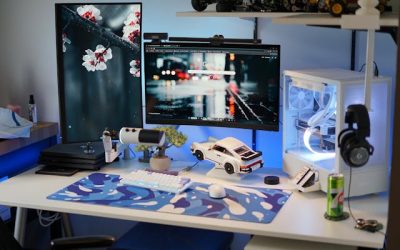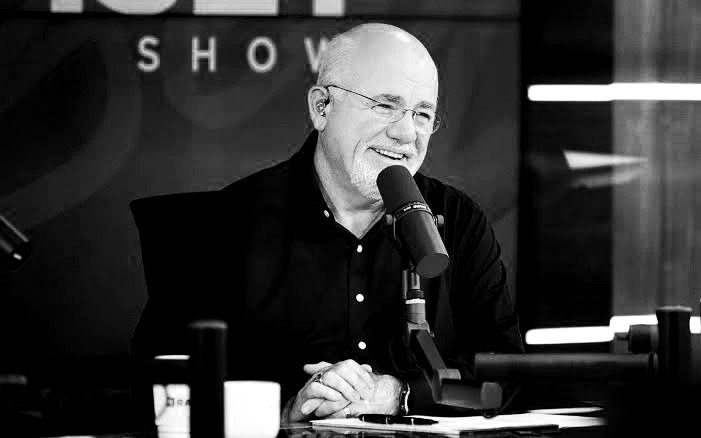Mark Zuckerberg vs. Sam Altman: 5 Productivity Secrets Behind Their Success
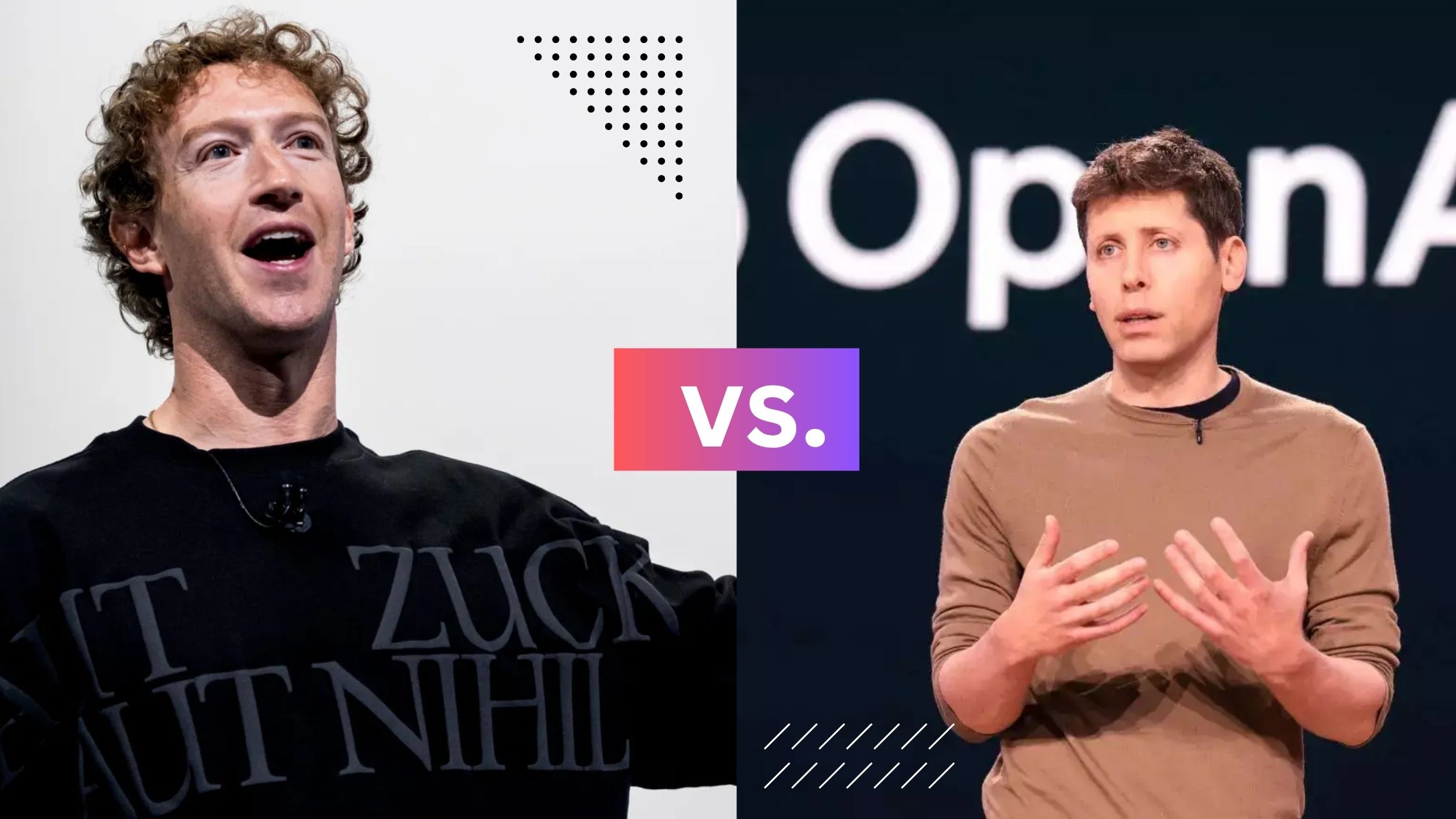 5 Productivity Secrets Behind the Success of the Two Tech Giants // Image: Mark Zuckerberg, Meta CEO vs. Sam Altman, OpenAI CEO
5 Productivity Secrets Behind the Success of the Two Tech Giants // Image: Mark Zuckerberg, Meta CEO vs. Sam Altman, OpenAI CEO
You don’t have to run Facebook or OpenAI to borrow the mindset of two of the most relentlessly effective tech gaints on the planet. Mark Zuckerberg and Sam Altman have shaped entire industries, and they didn’t do it by accident. They built systems, habits, and attitudes that keep them consistently ahead.
Let’s break down the five productivity secrets that set them apart and how you can use them to level up your work.
1. Obsessive Clarity of Purpose
If you study the careers of Zuckerberg and Altman, you’ll find this common thread: they both lock onto a clear purpose and protect it ruthlessly.
Mark Zuckerberg: The Relentless Mission
From his earliest days at Harvard, Zuckerberg fixated on a single mission: connecting people. In interviews, he often describes Facebook not as a company, but as a social utility—something inevitable. This clarity meant he didn’t get pulled into distractions, even when critics called Facebook a fad. He doubled down on user growth, community, and engagement.
That focus drove decisions like:
- Turning down billion-dollar buyout offers in Facebook’s infancy.
- Reinvesting revenue into infrastructure to handle scale, instead of maximizing short-term profit.
- Prioritizing new products (like News Feed and Messenger) over safer bets.
Zuckerberg’s lesson: Define your mission so clearly that every big choice becomes obvious.
Sam Altman: The Ambitious Vision
Altman’s purpose sounds simple: accelerate the future. Whether running Y Combinator or leading OpenAI, he talks about lifting the ceiling of what’s possible. His productivity doesn’t come from doing more—it comes from aligning his energy with the biggest, most meaningful bets.
When Altman helped scale Y Combinator, he didn’t try to optimize every process. Instead, he focused on the core goal: funding the most promising founders. At OpenAI, his clarity around advancing artificial general intelligence drives how he recruits, prioritizes, and communicates.
Altman’s lesson: When you know what matters most, you don’t waste energy on everything else.
Try this yourself: Write down the one sentence that defines why you do what you do. Tape it above your desk. Let it filter out anything that doesn’t move you closer.
2. Systems Over Willpower
Most people try to be productive by relying on bursts of motivation. Zuckerberg and Altman take a different route. They build systems so that even on days when they feel tired or uninspired, progress still happens.
Mark Zuckerberg: Uniforms and Decision Reduction
You’ve probably seen photos of Zuckerberg in his gray T-shirt. For over a decade, he wore nearly the same outfit every day. According to Adam Mosseri, head of Instagram, Zuckerberg spent years “not wasting any energy on deciding what to wear.” He just wore “the same thing every day for a long time, as a lot of tech execs have done.”
That simple habit saves mental bandwidth for bigger decisions, like how to scale a platform used by billions.
Other examples of his systems:
- Scheduling blocks of uninterrupted time for deep work
- Delegating aggressively so senior leaders can own entire areas
- Using consistent frameworks to evaluate new products
Takeaway: Productivity isn’t about testing your willpower. It’s about designing your day so you don’t have to.
Sam Altman: Lists, Constraints, and Momentum
Sam Altman also relies on systems, not force. In his own words, “Picking the right thing to work on is the most important element of productivity.” He makes handwritten lists every year, month, and day, retranscribing them often to stay focused.
Altman avoids meetings whenever possible and keeps large blocks of unscheduled time to think deeply. “I try to be ruthless about saying no to stuff,” he says, because each distraction steals momentum. He’s also careful not to neglect health, friends, or activities that clear his head, believing that “it’s a very stupid tradeoff” to sacrifice happiness for the illusion of productivity.
He sums it up simply: “Chasing productivity for its own sake isn’t helpful.” The real goal is to design your systems so they carry you forward.
Takeaway: You don’t rise to the level of your ambition. You fall to the level of your systems.
If you want to see exactly how Sam thinks about focus and time, read his post here:
Sam Altman: What He Said About Productivity
On Picking the Right Work
- “Picking the right thing to work on is the most important element of productivity.”
- “I’ve learned that I can’t be very productive working on things I don’t care about or don’t like.”
- He avoids work he dislikes by delegating or not taking it on.
- “Stuff that I don’t like is a painful drag on morale and momentum.”
- He also emphasizes that doing great work usually requires being around smart, productive, happy, positive people who don’t belittle your ambitions.
On Prioritization and Focus
- He makes many lists: yearly, monthly, and daily.
- Prefers lists written down on paper and frequently retranscribes them.
- “I try to prioritize in a way that generates momentum. The more I get done, the better I feel, and then the more I get done.”
- “I am relentless about getting my most important projects done—I’ve found that if I really want something to happen and I push hard enough, it usually happens.”
- “I try to be ruthless about saying no to stuff and doing non-critical things in the quickest way possible.”
- “I generally try to avoid meetings and conferences as I find the time cost to be huge.”
- However, he makes space in his schedule for chance encounters and exposure to new people and ideas.
On Systems and Scheduling
- He values his time and allocates it purposefully.
- “The right goal is to allocate my year optimally, not my day.”
- He keeps different times of day reserved for different kinds of work.
- “Chasing productivity for its own sake isn’t helpful.”
On Health and Relationships
- He experiments to learn what works best for his body (sleep, exercise, nutrition).
- “Don’t neglect family and friends for the sake of productivity—that’s a very stupid tradeoff (and very likely a net productivity loss, because I’ll be less happy). Don’t neglect doing things I love or that clear my head either.”
On Mindset
- “It’s important to learn that I can learn anything I want, and that I can get better quickly.”
- He believes in working both smart and hard.
– Source: Productivity Post – Sam Altman
3. Mastering Asynchronous Communication
Neither Zuckerberg nor Altman micromanage. They lead huge teams without drowning in meetings. How? They leverage asynchronous communication—writing things down instead of always talking them out.
Mark Zuckerberg: Written Context at Scale
At Facebook (now Meta), Zuckerberg established a culture where decisions are documented and shared. Major initiatives are often explained in long memos rather than endless presentations.
When he announced the company’s shift to focus on the metaverse, he published a public letter. Internally, leaders distribute detailed notes so teams can align without live discussions.
Benefit: Clear documentation scales context. It saves time by preventing confusion and repetition.
Sam Altman: Clarity in Writing
Altman is famous for his thoughtful blog posts and internal memos. At Y Combinator, he shared essays to articulate YC’s philosophy, so founders could reference them anytime. At OpenAI, he often outlines strategy in writing to maintain alignment across a fast-growing organization.
Benefit: Written communication reduces the need for synchronous meetings and builds shared understanding.
Try this yourself: Before scheduling your next meeting, ask: Could I solve this with a clear written note? Practice summarizing decisions on one page.
4. Staying Close to the Builders
Zuckerberg and Altman are CEOs, but they never drift too far from the product. This isn’t a coincidence—it’s a productivity multiplier.
Mark Zuckerberg: Weekly Product Reviews
Zuckerberg still hosts product reviews where teams demo work in progress. He asks questions, offers feedback, and reinforces priorities. It keeps him grounded in reality—what’s shipping, what users are saying, and where the gaps are.
This habit ensures he’s not operating in a bubble of metrics and presentations. He stays close to the people building the future.
Takeaway: When you stay connected to the work itself, your decisions are sharper.
Sam Altman: Embedded in the Work
Altman doesn’t just oversee AI research—he studies it obsessively. He engages with researchers, experiments with models, and understands the details. That’s why he can move quickly on big bets—he doesn’t wait for reports; he learns firsthand.
Takeaway: Proximity to the work keeps you from becoming a manager who only manages.
Try this yourself: Schedule regular time to get your hands dirty. If you’re a marketer, run a campaign yourself. If you’re in product, prototype an idea. Stay connected to the craft.
5. Long-Term Obsession Meets Urgent Action
This is where both leaders shine. They hold massive visions while operating with daily urgency. It’s a rare combination, and a powerful one.
Mark Zuckerberg: Infinite Horizon
Zuckerberg is comfortable thinking in decades. When he talks about the metaverse, he’s not describing something that will pay off next year. He’s betting on where human connection will go over 20 years.
But that doesn’t mean he moves slowly. Facebook scaled from a dorm room project to a global platform because he paired long-term belief with constant iteration.
Lesson: Have a North Star, but take daily steps.
Sam Altman: Urgent Experiments
Altman once said, “Most people waste too much time thinking and not enough time doing.” He pushes his teams to test ideas fast—even when they’re imperfect. He added in his post as cited above, “I’ve found that if I really want something to happen and I push hard enough, it usually happens.“
At OpenAI, this philosophy produced rapid releases. GPT-3, Codex, DALL-E—each shipped faster than most would expect. The team iterates publicly, learning as they go.
Lesson: The combination of vision and speed is what builds industry-shaping products.
Try this yourself: Set an audacious goal, then ask: What can I do this week to make progress? Don’t wait for the plan to be perfect.
Bringing It All Together
These five productivity secrets aren’t about working longer hours or grinding harder. They’re about working smarter, with clarity and purpose. Zuckerberg and Altman succeed because they:
- Define why they’re here.
- Build systems that remove friction.
- Communicate clearly and asynchronously.
- Stay close to the work.
- Combine vision with urgency.
You don’t have to be a billionaire founder to apply these ideas. Start small. Pick one principle that resonates. Build your system around it. Watch how quickly it compounds.
Hey! I'm Akpan Unwana, the founder of MoneyBreez. I am a digital entrepreneur, graphic and web designer who loves to use the digital space to generate income, freedom and meaningful opportunities. Over the years, I have been able to understand how design, creativity, and clever investing can be used to build real opportunities online
I write on MoneyBreez about real life tips on how to earn online, using emerging technologies to create wealth and be a smarter person with money.



